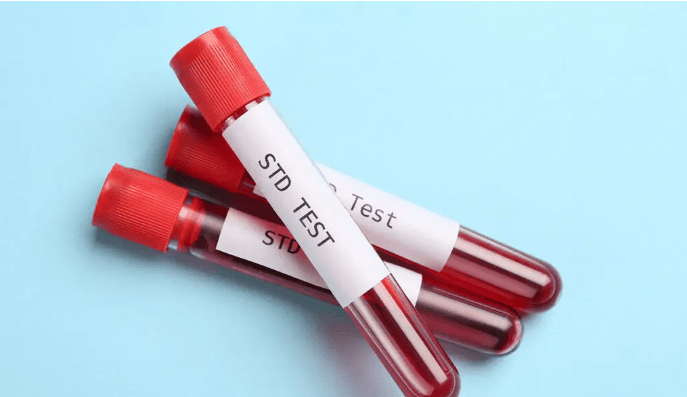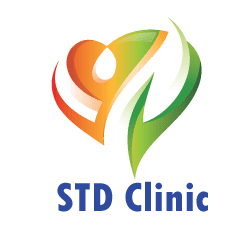STD Clinic Kuala Lumpur

STD Clinic Kuala Lumpur a complete guide to testing, treatment and staying safe

Sexual health is health. If you live in or are visiting Kuala Lumpur and you’re thinking about testing, treatment, or just want to understand what sexual-health services look like in the city, this article walks you through everything: common STIs, where and how to get tested in KL, what tests and treatments involve, confidentiality and cost, prevention (condoms, vaccines, PrEP/PEP), and practical tips for a clinic visit.
Table of Contents
Why get tested (and why now) in STD Clinic Kuala Lumpur
Many sexually transmitted infections (STIs) are painless or cause mild symptoms, yet untreated infections can lead to serious complications (infertility, risk of HIV, pregnancy complications) and can be passed to partners. Testing is the only reliable way to know your status — it protects your health and the people you care about. Testing is routine, common, discrete, and available across public, private and community clinics in Kuala Lumpur.
In STD Clinic Kuala Lumpur which STIs are most common and what to look for
The infections you’ll hear about most often include:
- Chlamydia and gonorrhoea — bacterial infections often without symptoms, detectable by urine or swab NAAT tests. Untreated, they can cause pelvic inflammatory disease in women and infertility in both sexes.
- Syphilis — bacterial; shows staged symptoms (a painless sore, rashes), diagnosed by blood tests and treatable with penicillin.
- HIV — diagnosed by antibody/antigen blood tests and by rapid point-of-care kits; early diagnosis changes everything for treatment and prevention.
- Genital herpes (HSV) — viral, causes recurrent blisters; diagnosis by swab/PCR or blood tests.
- HPV (human papillomavirus) — some types cause genital warts; some high-risk types cause cancers; vaccines prevent the most dangerous types.
For accurate screening and management guidelines, clinicians in Malaysia follow international and local MOH guidance; testing methods such as NAAT (nucleic acid amplification tests) are the standard for chlamydia and gonorrhoea because of high accuracy.
Where to get tested in STD Clinic Kuala Lumpur public, private, and community options
1. Government health clinics and hospitals
Government Klinik Kesihatan (health clinics) and hospitals provide HIV screening and STI services; HIV tests are available free of charge to Malaysian citizens at many public health facilities. The University Malaya Medical Centre (UMMC) has specialist infectious-disease services that manage complicated STI and HIV care and can provide referrals and follow-up for complex cases. If you want fully clinical care (lab follow-up, specialist input), public hospitals are an important option.
2. Community and NGO in STD Clinic Kuala Lumpur
Community health clinics — for example CHC Clinic in Sentul — provide low-cost and anonymous testing, counselling, and linkage to care for people who want privacy and a non-judgmental environment. These community providers are often easier to approach if you’re worried about stigma and can offer harm-reduction services, counselling, and signposting.
3. Private sexual-health clinics and walk-in STD Clinic Kuala Lumpur
There’s a growing number of private STD Clinic Kuala Lumpur that advertise dedicated sexual-health services: Pulse Clinic, He Medical Clinic, SpringHill, NextMed, The Red Clinic and others. These clinics typically offer private, appointment-based testing packages (single tests or full panels), faster turnaround times for results, teleconsult options, and anonymous or discreet testing when requested. Prices vary widely between clinics and packages.
Confidentiality and anonymous testing in Malaysia (STD Clinic Kuala Lumpur)
Stigma around STIs and HIV is real — Malaysia’s health services recognise this and there are formal pathways for confidential and even anonymous testing in many settings. Community clinics and several private clinics explicitly advertise anonymous testing (you can be tested without having your name linked to the record). Government MOH guidance also outlines confidentiality protections for voluntary HIV/STI screening. If privacy is a priority, ask the clinic about anonymous or coded tests when you book.
What tests are done and what to expect at a visit to STD Clinic Kuala Lumpur
A typical sexual-health clinic visit may include:
- Brief history and risk assessment — the clinician or nurse will ask about recent exposures, symptoms, partners and sexual practices to tailor testing.
- Physical exam (if symptomatic) — genital inspection, throat/rectal exam if indicated.
- Sampling for laboratory tests:
- Blood tests (HIV antigen/antibody, syphilis serology, hepatitis B/C if indicated).
- Urine NAAT (first-catch urine) for chlamydia and gonorrhoea — common, non-invasive and appropriate for many asymptomatic people.
- Swabs: self-collected vaginal swabs (valid and comfortable) or clinician-collected urethral, rectal or pharyngeal swabs depending on exposure. NAATs are the recommended method for chlamydia/gonorrhoea testing because of their high sensitivity.
- Rapid tests: many clinics offer rapid HIV tests with same-visit results (often fingerprick or oral swab), while confirmatory testing follows positive rapid results.
- Counselling and follow-up: staff should explain window periods (how soon after exposure a test is accurate), additional testing needs, and partner notification or treatment advice if positive.
Treatment in STD Clinic Kuala Lumpur what happens if a test is positive
- Bacterial STIs (chlamydia, gonorrhoea, syphilis): treated with antibiotics. Prompt treatment is usually curative and prevents complications; partners may need treatment too (partner-notification). Resistance patterns (especially for gonorrhoea) are monitored, so clinicians follow up-to-date national or international guidelines.
- Viral STIs (HIV, HSV, HPV): HIV is managed with antiretroviral therapy (ART) — early treatment is effective and keeps people healthy while preventing onward transmission. Herpes is managed with antivirals to reduce symptoms and outbreaks. HPV management focuses on prevention (vaccination), screening and treating lesions where appropriate.
- PEP (post-exposure prophylaxis): If you think you have had a recent high-risk exposure to HIV, PEP is available and must be started within 72 hours of exposure; clinics and emergency departments offer it.
Prevention: condoms, vaccines, PrEP and harm reduction
- Condoms: still the most accessible and effective protection against many STIs when used correctly.
- Vaccines: HPV (recommended to prevent HPV-related cancers and warts) and hepatitis B vaccines are available in Malaysia and are an important prevention tool.
- PrEP (pre-exposure prophylaxis): PrEP — pills taken to prevent HIV — has been rolled out in Malaysia and uptake has increased; government programmes and selected clinics now provide PrEP services, and long-acting injectable PrEP (cabotegravir) has been reported to be rolling out nationally around 2024–2025. Recent reporting shows thousands of people have started PrEP since it became available through programs, and the Malaysian health system is expanding access at multiple government clinics. If you’re at higher risk for HIV, speak to a clinic about PrEP eligibility and how to start.
Cost and booking — what it might cost you in STD Clinic Kuala Lumpur
- Public sector: HIV screening is free for Malaysian citizens at government health clinics; other STI services at public hospitals are subsidised for citizens but may have fees for some tests or follow-up. Non-citizens typically pay fees. Check with the specific Klinik Kesihatan or hospital.
- Community clinics: community/NGO clinics like CHC may offer low-cost or sliding-scale services and anonymous testing at lower cost than private STD Clinic Kuala Lumpur.
- Private clinics: packages vary — simple rapid HIV tests or single tests can be inexpensive, while full STD panels, NAATs and specialist consultations can cost more. Private clinic price examples show a wide range (from tens to several hundreds of ringgit depending on tests included). If cost is a concern, call ahead and ask for a price list; many clinics publish prices for common packages.
Practical tips for visiting an STD clinic in KL
- Book ahead if you can — private clinics often let you book online or by phone; community clinics may have specific walk-in hours.
- Ask about confidentiality and anonymous testing before you go if this matters to you. Many places will accommodate coded/anonymous testing.
- Don’t urinate for 1–2 hours before a urine NAAT if you’re being tested for chlamydia/gonorrhoea — that improves the accuracy of first-catch urine tests. (Clinics will advise.)
- Know the window periods: some tests need to be done several weeks after exposure to be accurate — clinics will advise on optimal timing.
- Bring ID and payment if required, but ask about anonymous options if you prefer not to use your name.
- If positive, inform recent partners — clinics can help with partner notification and treatment options.
- Consider vaccination and PrEP if you’re at ongoing risk — clinics offering sexual health services can advise and start these programmes.
Where to start: recommended first steps
- If you have symptoms (discharge, sores, painful urination, unusual bleeding, lumps) — seek testing immediately; don’t wait.
- If you had a high-risk exposure within 72 hours (e.g., condom failure with a partner of unknown HIV status), go to an emergency department or clinic for PEP.
- If you’re unsure but sexually active — routine screening is wise: speak to a GP, community clinic, or a private sexual health clinic for a tailored testing package. Many private clinics in KL advertise discreet packages and teleconsult options if you prefer remote booking.
FAQs (quick answers) about STD Clinic Kuala Lumpur
Q: Can I get tested anonymously in KL?
A: Yes — many community and private clinics offer anonymous testing options, and MOH guidance supports confidentiality. If anonymity is crucial, confirm with the clinic before booking.
Q: How long do results take?
A: Rapid HIV tests give same-visit results. NAAT results for chlamydia/gonorrhoea and blood tests for syphilis/HIV may take from 24 hours up to several days depending on the clinic and lab. Private clinics often have faster turnaround than public hospitals.
Q: Are STIs treatable?
A: Most bacterial STIs are easily cured with antibiotics. Viral STIs are managed with antiviral drugs and preventive strategies. Early detection improves outcomes.
